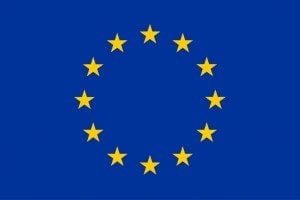
Resilience, Inclusivity, Support and Equality (RISE): leading to a democratic society through empowerment of CSOs in Tajikistan
Duration: 1 March 2023 – 28 February 2025
Country: Tajikistan
Communities: vulnerable communities (including women, youth, ethnic minorities, and people with disabilities) in Districts of Republican Subordination, Khatlon Region and Sughd Region of Tajikistan
What is this programme about?
This programme aims to contribute to a resilient and inclusive society in Tajikistan, a society guided by a rights-based and accountable public governance which recognizes the needs and challenges faced by vulnerable groups in realizing their rights. It is, thus, essential that local civil society actors and rights holders have an effective understanding of human and minority rights, as well as monitoring and advocacy.
We will strengthen the capacities of local civil society organizations (CSOs), grassroots organizations and civic activists to monitor the implementation of human rights commitments. We will achieve this by giving trainings and building a network for local CSOs to improve their strategic thinking, sharpen their skills, and foster evidence-based advocacy opportunities and more inclusive social and policy dialogue. We will also promote human rights awareness and fundamental freedoms by engaging and supporting local CSOs in democratic governance to increase minority participation and the inclusion of vulnerable groups at the local, regional, and national levels in Tajikistan.
Why are we delivering this programme?
CSOs in Tajikistan representing the interests of vulnerable communities are struggling to influence decision-makers and maintain their credibility among key stakeholders. Generally, they lack the organizational capacity to plan strategic and sustainable programmes and to undertake effective advocacy. In most cases, they also face limited access to funding. While collaboration amongst CSOs exists, an inter-regional basis for exchange of ideas and expertise and for the development of joint programmes and advocacy campaigns is still undeveloped.
In the current political atmosphere of Tajikistan, there are attempts to foster the development of a flourishing civil society. However, the legislative basis, tools, and policies which mainstream equal access to human rights and underline the importance of civic society, while present, are often not implemented in practice and fragmentary in nature. Vulnerable communities, especially minorities, have low levels of education and lack the tools to advocate for their rights. The influence of civic actors over decision-making and their participation in policy implementation and monitoring remains very limited.
Further challenges for CSOs have been raised by recent trends in national legislation including frequent inspections and more rigid financial reporting requirements. The lack of cooperation between the government and the civil society on issues including human rights and the poor performance of the civic sector affects the acknowledgement of policymaking and monitoring endeavours undertaken by CSOs by those in power as well as the larger population. As a result, human rights policies and practices at local and national levels often fail to address the needs of the most marginalized people.
Youth, ethnic minorities, women, and people with disabilities face various obstacles in realizing their social, economic, and cultural rights. Such groups are highly vulnerable to poverty, unemployment, gender inequality, ill-health and lack of political and public representation.
Creation of equitable living conditions for everyone alongside regional development must become a foundational principle for representatives of the Tajikistani government authorities. To this end, it is important to build the capacity of duty-bearers to improve their collaboration with civil society, the private sector, and other development partners.
What are we doing?
- Running trainings for civil society actors and activists on human rights, monitoring and evidence-based advocacy.
- Organizing study visits for project partners to diversify their activities, knowledge, ideas and methods.
- Sub-granting trained non-governmental organizations to conduct advocacy and awareness-raising campaigns in their constituency or community.
- Holding roundtables for local organizations implementing public initiatives, local media, and relevant government agencies to build dialogue between local CSOs and authorities.
- Developing a networking platform to act as an information hub for local and regional developments and opportunities and establish coalitions between participating CSOs for joint action and advocacy.
- Publishing a human rights monitoring report that is thematically focused on all the minorities in Tajikistan.
- Organizing a final conference to share programme experiences and learnings, to evaluate programme results through an external evaluator and to provide exchange opportunities for key stakeholders.
Who are our partners?
- Marifati Shahrvandi is a Tajikistani NGO founded in 1998 and registered in 2007 as a republican organization. It aims to promote and defend the legal, cultural, economic, social, medical, and environmental rights and freedoms of women and youth in all of Tajikistan by supporting civil society’s mobilization and sustainable development and raising awareness.
- Ghamkhori is a Tajikistani NGO founded in 1996 in the southern region of Khatlon aiming to improve the socio-economic well-being of the local population through awareness raising, education and assistance in healthcare and agriculture, defence and promotion of fundamental rights and interests, promotion of healthy lifestyle and cooperation with local authorities and international organizations.
Who is funding this programme?
The European Union supports this programme.
 This content represents the views of Minority Rights Group only and is its sole responsibility. The European Union does not accept any responsibility for the use that may be made of the information it contains.
This content represents the views of Minority Rights Group only and is its sole responsibility. The European Union does not accept any responsibility for the use that may be made of the information it contains.
 Participants discuss cases of minority rights violations at a training in Bokhtar, Tajikistan. Credit: Nurangiz Khodzharova.
Participants discuss cases of minority rights violations at a training in Bokhtar, Tajikistan. Credit: Nurangiz Khodzharova.